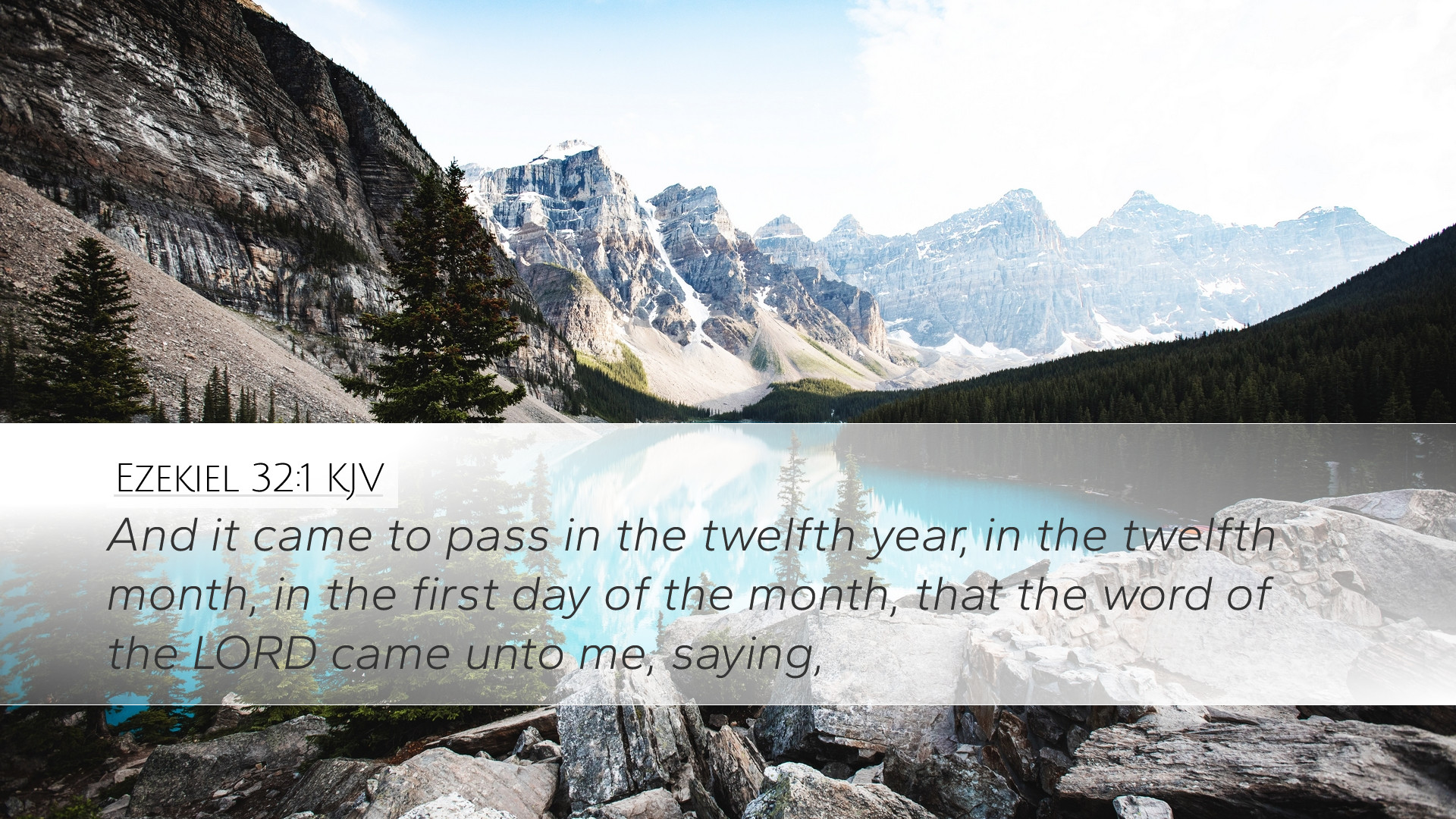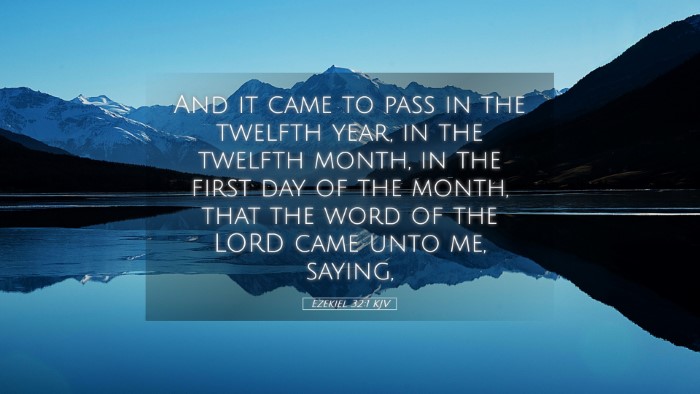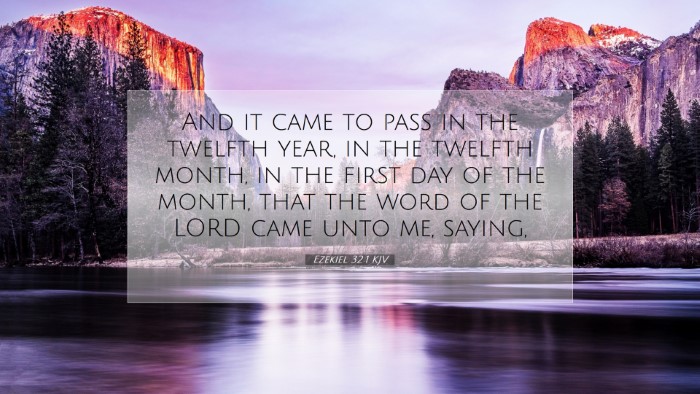Ezekiel 32:1 Commentary
"And it came to pass in the twelfth year, in the twelfth month, in the first day of the month, that the word of the Lord came unto me, saying," - Ezekiel 32:1 (KJV)
Introduction
This verse marks a critical moment in the prophetic ministry of Ezekiel, signifying both a chronological note and a divine communication. The weight of the message that follows is significant, as it speaks to the condition of Egypt in relation to its surrounding nations and the sovereignty of God over the destiny of peoples and nations.
Contextual Background
The book of Ezekiel is written during the Babylonian exile, a period of profound theological reflection and community identity crises among the Israelites. Ezekiel, as a priest and prophet, stands as a voice of warning and hope, addressing not only the Israelites but also foreign nations.
In this specific passage, the mention of "the twelfth year, in the twelfth month, in the first day of the month" indicates a precise historical point, reinforcing the prophet’s role as a servant of God who delivers messages in real time.
Commentary Insights
Matthew Henry's Commentary
Henry emphasizes the divine sovereignty of God over nations, noting that this message to Ezekiel serves to remind both Israel and Egypt of the ultimate authority of Yahweh. He highlights how God’s word is not only timely but also purposeful, designed to guide Israel in their understanding of their place within God’s plan.
Albert Barnes' Notes on the Bible
Barnes points out that the meticulous time reference enhances the authenticity and seriousness of Ezekiel’s prophetic role. The passage signifies a prophetic call that is rooted in time, emphasizing that God’s revelations are both periodic and significant. The “word of the Lord” represents an authoritative announcement that cannot be taken lightly, showcasing that God is actively engaging with historical events.
Adam Clarke's Commentary
Clarke notes that the timing is particularly significant as it aligns with historical events in Egypt's struggle for power. He asserts that the arrival of this word serves as a preparation for the heavier judgments proclaimed in subsequent chapters, outlining a trajectory of prophetic discourse that examines both past and future divine intervention in human affairs.
Theological Themes
- The Sovereignty of God: This verse exemplifies the lordship of God over nations. It reiterates that God controls the fate of all peoples, including Egypt.
- Prophetic Timing: The precise historical marker given in this verse underlines the importance of recognizing God’s timing in prophecy and fulfillment.
- Divine Judgment: This message is a precursor to the impending judgment upon Egypt, indicating that God’s justice operates on a national scale as well as personal.
- Call to Remembrance: For the Israelites, this message serves to remind them of God’s past dealings with nations and His enduring promise of restoration.
Application for Today
This verse invites modern readers, particularly pastors, students, and theologians, to reflect on how God speaks in specific historical contexts and how this can inform current understandings of divine justice and mercy. It challenges believers to examine their lives within both local and global contexts, recognizing that, like Egypt, nations today are also under God's sovereignty.
In teaching, this passage can be used to explore themes related to God’s communication, the necessity of prophetic voices in the modern era, and the importance of obedience to God's revelations.
Conclusion
In Ezekiel 32:1, we find a profound invitation to dwell on the nature of God’s communication, the significance of timing in divine messages, and the reality of God’s sovereignty over the nations. This commentary synthesizes various perspectives on this significant declaration, providing a foundation for deeper theological exploration.


